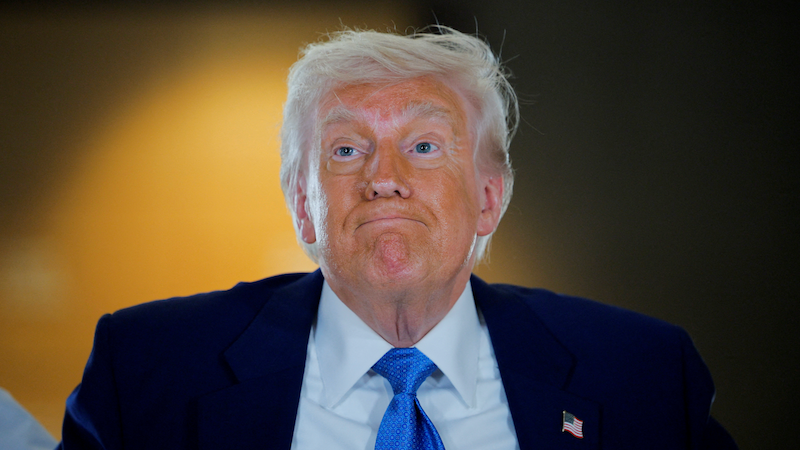A Senate Republican who frequently butts heads with President Donald Trump and his agenda has exposed the “limits of Trump’s political power,” two Politico reporters wrote Friday.
Sen. Susan Collins (R-ME) was one of the very few Republicans to object to Trump’s pick for Pete Hegseth for defense secretary, opposed Trump’s budget reconciliation package known as the One Big Beautiful Bill Act, and even defied Trump during his first term by opposing the repeal of Obamacare. Yet despite Trump actively discussing ways to replace Collins, it’s become apparent, Politico writes, that he lacks the leverage to tip the scales against her.
“Collins’ unique position in Maine shows the limits of Trump’s political power,” wrote Politico reporters Andrew Howard and Jessica Piper Friday. “...There appears to be little appetite – in either party – for challenging Collins, who won reelection by 9 points in 2020, despite Joe Biden easily winning the state.”
As among the most moderate Republicans in her caucus, Collins has managed to hang onto her seat in a state that continues to trend blue, a fact that has limited Trump’s ability to replace her with a lawmaker more aligned with his agenda.
“If someone were able to run against her and by chance beat her, that would be a really bad thing for Maine,” said Garrett Mason, former Maine Senate majority leader, speaking with Politico. “But I just don’t see that happening. That’s not what’s on the ground here.”
Trump has employed a number of tactics to eliminate dissent and consolidate control. He’s currently working with Texas Republicans to redraw that state’s congressional districts to give House Republicans five new members, and he’s also staged primary challenges for Republican lawmakers who have not towed the party line, including Rep. Thomas Massie (R-KY), who voted against Trump’s OBBBA.
In the case of Collins, however, no option appears to exist for Trump to squash her dissent.
“While Collins may frustrate the MAGA wing, a different Republican more in line with Trump’s agenda would also be much more likely to lose the seat,” Howard and Piper wrote.
